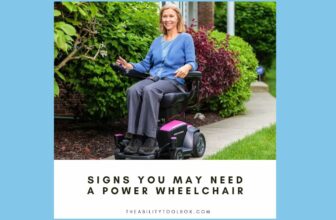
Mindfulness is the practice of noticing present-moment experiences with curiosity and a lack of judgment. A person who has, knows, or lives with someone with a chronic medical condition understands the intense desire for finding some relief from the strain, mentally and physically. Between flare-ups, grieving a prior life, missing out on events, and living in a less-than-understanding world, the practice of being mindful continues to show evidence that it may just help retrain the brain in order to notice and allow all of the emotions, as well as promote overall greater well-being for people living with chronic illness.
Types of Mindfulness That Can Help People with Chronic Illness
Focused Awareness
Paying attention to something, such as the breath or the body, for a period of time and coming back to this focus when the mind naturally wanders trains us to stay present rather than anticipating the future or dwelling on the past.
Open Awareness
Noticing whatever thoughts, emotions, and physical sensations arise broadens our awareness and promotes learning how to be with what is in our daily experiences.
Benefits of Mindfulness for People with Chronic Illness
Scientific evidence still continues to grow and work through the challenges of its research, however, most agree that mindfulness is a low-risk, accessible option that fortunately comes at little to no cost.
Develops a stronger sense of self-knowing
A mindful state can assist in finding clarity, an important factor for those dealing with brain fog. A person with a chronic illness may begin to lose a sense of self, so feeling whole and present is monumental.
Reduces habitual thinking
Sometimes routine is good, but other times when the mind constantly reverts to negative thinking after countless reminders of physical pains or seemingly endless disappointing doctor visits, it is crucial to be freed of these thought patterns.
Promotes a relaxation response
Tension and stress can exacerbate so many conditions, making it seem even harder to relax. Herbert Benson, MD, noted that there are many ways people are already participating in activities that encourage relaxation and the results confirm to no surprise that their emotional and physical responses to a stressful trigger are reduced.
Daily Mindfulness Practices for People with Chronic Illness
Try these on your own time and see if you notice any difference in your response to stressful situations or if you find greater compassion in what you experience. Be kind to yourself and recognize you may not see benefits from a single session alone. Always remember to approach your mindfulness practice with an open heart and to stop if you experience any discomfort.
Please be sure to consult a medical professional first if you have been diagnosed with bipolar disorder, schizophrenia, or major depressive disorder, or if you have an active substance addiction.
Body Scan
In a comfortable position (seated or lying down on your back is best), encourage an opportunity for your body to release any tension it is holding onto. Starting at the top of the body, scan through each body part until you reach your toes paying special attention to tense points and letting go of whatever you do not need.
Mindful Tasks
Begin with a few breaths before you start a task. For instance, take a moment before cleaning a room of the house and occasionally check back in with your breath as you work on that activity. Simply notice any sensations that rise without any judgment on that thought until you finish your task.
Guided Meditation
There are plenty of apps and videos available now offering guided meditations focusing on aspects of life getting in your way. Apps like Calm and Headspace offer focused categories, such as anxiety or insomnia. Consider trying a short one (up to 5 minutes) to begin and see how just a few moments a day may help you.
Mindfulness Books for People with Chronic Illness
If you'd like to explore mindfulness practices further, these books are written especially for those coping with chronic illness.
As an Amazon associate, we earn from qualifying purchases.
How does mindfulness help you cope with chronic illness?
Let us know in the comments.
performer in the CI community 🥄















